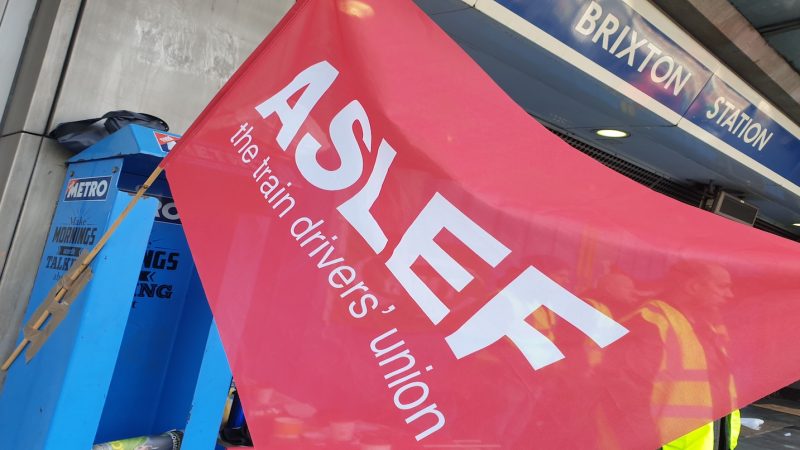'It’s time for them to act like the grown-ups in the room'

The train drivers’ union Aslef announced yesterday that ‘significant’ pay offers have now been made in Scotland and Wales which the union can recommend putting to their members.
Whilst the Department for Transport (DfT) has failed to make a comparable offer, with Aslef general secretary Mick Whelan saying the response from England’s neighbouring Parliament’s comes in ‘stark contrast’ to that from the Westminster government.
ScotRail has made a new one-year offer of a 5% pay increase which would take drivers pay from £55,264 to £58,027.
This would be the fourth increase members at ScotRail have had in the same space of time that members at the 15 Train Operating Companies (TOC) represented by the Rail Delivery Group and controlled by the DfT have not had a pay rise.
Transport for Wales has presented a four-year pay offer of 8.9%, taking train drivers pay there up to £63,200.
Drivers in Wales will then see their pay eventually increase to £71,000 by December 2024, following further gradual uplifts included in the offer. The deal will also modernise the railway in Wales, the union has said.
Aslef will be recommending both the offers, which will be put to their members for a vote.
ScotRail is overseen by Scottish Rail Holdings who are now wholly owned by the Scottish Government and Transport for Wales is a not-for-profit company set up by the Welsh Government.
Whelan said his union had ‘successfully negotiated signification pay increases’ for their members with the governments of the devolved nations, but that this was ‘sadly’ not the case with the Westminster government.
“It’s time for them to act like the grown-ups in the room,” urged Whelan.
“We do not want to go on strike – we do not want to inconvenience passengers, we have families and friends who use the railway, too, and we believe in investing in rail for the future of this country – but the blame for this action lies, fairly and squarely, at the feet of the employers who have forced our hand.
“It is up to them to come up with a sensible, and realistic, offer and up to the government not to hinder this process.”
He added: “This is further proof that ASLEF is willing to negotiate in good faith and modernise our railway.
“And further proof that the failure of negotiations with the TOCs in England is the responsibility of Mark Harper, the DfT, and the RDG. That has been laid bare for all to see.”
Aslef rejected an offer in January from the RDG of a 4% pay rise over two years, which the union slammed as well below inflation and also accused the RDG of rejecting their proposals to modernise Britain’s railways.
Westminster has said their offer to Aslef members in England was ‘fair and reasonable’.
A DfT spokesperson said: “Aslef has also had a fair and reasonable offer for members in England, that would take the average train drivers’ salary from £60,000 to £65,000 while delivering reform to guarantee the future of the rail industry.
“It is time for them to put the offer to their members so they can have a say on their future and call off disruptive and cynical disruption.”
Train drivers pay varies across the 15 companies involved in the dispute.
Upcoming rail strike dates
Aslef members will walk out again for another 24-hour strike on Wednesday 31 May and Saturday 3 June.
Non-contractual overtime has also been withdrawn from Monday 15 to Saturday 20 May and on Thursday 1 June.
Hannah Davenport is trade union reporter at Left Foot Forward
Left Foot Forward’s trade union reporting is supported by the Barry Amiel and Norman Melburn Trust

To reach hundreds of thousands of new readers we need to grow our donor base substantially.
That's why in 2024, we are seeking to generate 150 additional regular donors to support Left Foot Forward's work.
We still need another 117 people to donate to hit the target. You can help. Donate today.



